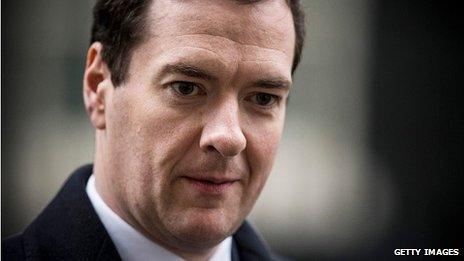Treasury looking at tightening tax evasion laws
- Published
- comments

So, what is to be done?
After all the sound and fury over tax evasion, a question in many people's minds is whether anything is actually happening to tighten the rules on income and capital held abroad.
Well, the answer to that is yes.
Last April, George Osborne spoke at the International Monetary Fund in Washington and revealed that he wanted to see change.
"We are changing the balance of the law so the burden of proof falls on those who are hiding their money offshore and we don't have to prove that they intended to do so," he said.
The Chancellor was referring to undeclared income held in offshore bank accounts and whether holding such accounts could in itself constitute a criminal offence.
At present prosecution authorities have to prove intent, a pretty high bar which means that successful cases are rare.
I am told that the Treasury is now preparing legislation to tighten the rules.
The process has been frustratingly slow.
A consultation programme was launched in the summer and many expected that new rules would be included in the Autumn Statement last December.
But, tax reformers were disappointed.
I am told the reason for the delay was a change in the "policy landscape" - that is, a new agreement between national governments on the automatic exchange of information on tax matters.
That agreement between members of the OECD has to be factored in to the new UK crackdown.
Treasury sources say that Mr Osborne is still as keen as he was last April to push through new legislation.
And with the Treasury Select Committee announcing an inquiry into the HSBC tax evasion allegations, it is clear this will remain high on the political agenda.
I am sure the Chancellor would like to announce a new crack down on tax evasion in the Budget.